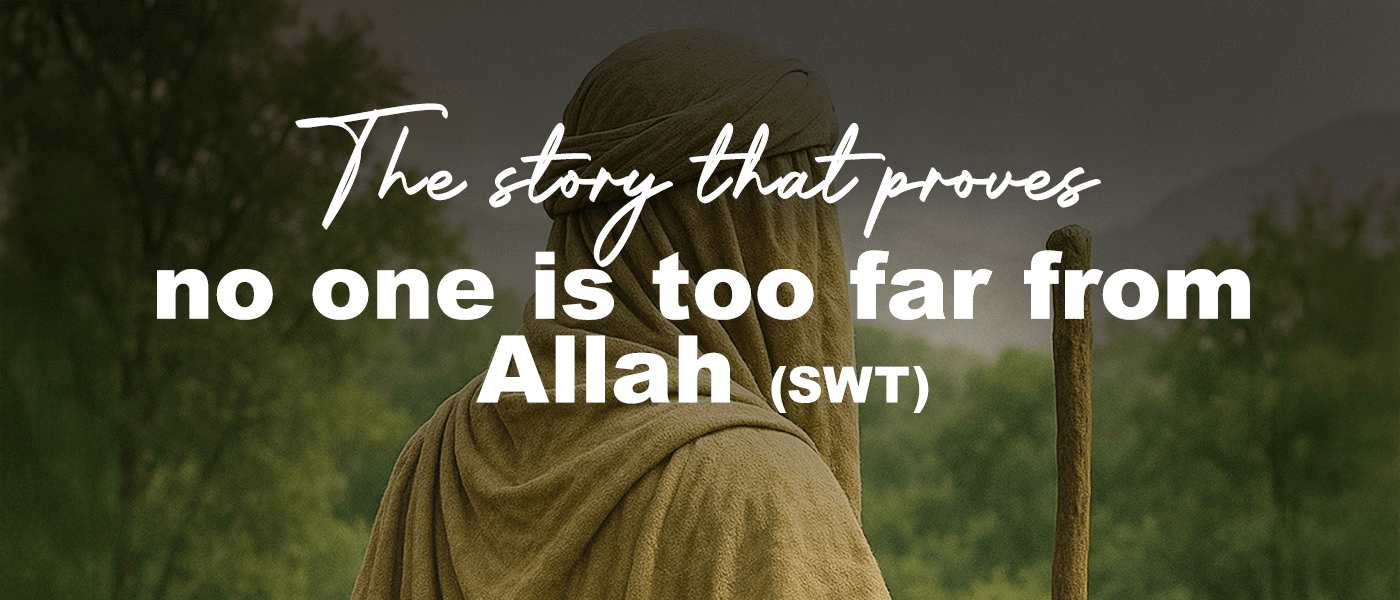Among the first stories that Allah (SWT) revealed to humanity is the story of Prophet Adam (AS) to serve as a deeply personal lesson for every soul that will walk the earth. Prophet Adam (AS) was the first human being, the first prophet, and the first to experience the weight of a mistake. But, more importantly, he was also the first to turn back to Allah (SWT), the first to utter words of repentance, and the first to be forgiven. His story is not one of failure, but of return and submission. It teaches us that making mistakes is part of being human, and that we should not become hopeless in the face of those mistakes. The path back to Allah (SWT) was opened in that very first moment — not through perfection, but through humility, remorse, and sincere repentance.
In a world that constantly tells us we must be flawless to be worthy, the story of Prophet Adam (AS) reminds us that Allah (SWT) does not expect us to be free of sins, He invites us to return when we slip. This is the story of the first mistake, and the first mercy. And it still speaks to every believer who longs to come back.
Allah (SWT) created Prophet Adam (AS) with His own hands and honored Him in ways no creation had ever been honored. He fashioned him from clay, breathed into him His spirit, and taught him the names of all things, knowledge that even the angels did not possess!
“Remember when your Lord said to the angels, ‘I am going to place a successive human authority on earth.’ They asked Allah, ‘Will You place in it someone who will spread corruption there and shed blood while we glorify Your praises and proclaim Your holiness?’ Allah responded, ‘I know what you do not know.’” (The Clear Quran®, 2:30)
Prophet Adam (AS) was not placed on earth by accident. From the beginning, he was chosen. Allah (SWT) had a purpose for him and for his children after him. But before he would descend to earth, Prophet Adam (AS) was placed in Jannah with his wife, Bibi Hawwa. There, he was told, “We cautioned, ‘O Adam! Live with your wife in Paradise and eat as freely as you please, but do not approach this tree, lest you be among the wrongdoers.’” (The Clear Quran®, 2:35)
It was a simple test not about hunger, but about obedience, and then came the whisper of Shaytan.
Shaytan, who had refused to bow to Prophet Adam (AS) and was cast out of Paradise, finally saw his chance. He swore by Allah (SWT) that he was only giving good advice. He told them the tree would bring eternal life. He played on fear and desire. And, so, they ate. This was the first mistake – or original sin. The first slip in human history. But Allah (SWT) is merciful and forgiving, and he does not abandon His servants because of their weakness. The test was never about perfection, it was about sincerity after imperfection.
When they realized what they had done, Prophet Adam (AS) and Bibi Hawwa were not arrogant. They did not blame others. They did not deny their mistake. They turned to Allah (SWT) with broken hearts and sincere words. “They replied, ‘Our Lord! We have wronged ourselves. If You do not forgive us and have mercy on us, we will certainly be losers.’” (The Clear Quran®, 7:23)
This short verse, taught by Allah (SWT) Himself, became the first act of tawbah in history. It teaches us that admitting our faults is not weakness. It is a path to nearness to our Creator. Allah (SWT), in His immense mercy, accepted their repentance. The Quran says, “Then his Lord chose him for His grace, accepted his repentance, and guided him rightly.” (The Clear Quran®, 20:122) This is the most beautiful part of the story. Allah (SWT) chose him after he sinned. Because he turned back. Because he was sincere.
On the other hand, Iblis was also someone who disobeyed Allah (SWT), but he was extremely arrogant. He refused to humble himself. Prophet Adam (AS) disobeyed too, but he wept, admitted, and returned. This is the difference between those who are raised by their mistakes and those who are ruined by them. The story of Prophet Adam (AS) is a reminder that:
- Allah (SWT) does not demand perfection from us, He (SWT) asks for humility.
- No sin is greater than His mercy.
- It is never too early or too late to return to Him.
Even in our lowest moments, if we turn to Him with honesty and remorse, we walk in the footsteps of the first human not in his fall, but in his elevation.
We live in a world where mistakes are mocked and flaws are weaponized. People cancel each other, judge each other, and give up on themselves. But Allah (SWT) never closes His door. If the very first man – honored, chosen, and blessed – could slip, then surely we will too. But if he could be forgiven, then we can be forgiven. And if Allah (SWT) chose to teach us the words of repentance through Prophet Adam (AS), then these are words we should never be too proud to repeat.
“Our Lord, we have wronged ourselves, and if You do not forgive us and have mercy upon us, we will surely be among the losers.”
Let this be the dua on our tongue, especially in moments of guilt, doubt, or regret. Because this story is not only his, it is also ours.
“And the two among you who commit this sin—discipline them. If they repent and mend their ways, relieve them. Surely Allah is ever Accepting of Repentance, Most Merciful.” (The Clear Quran®, 4:16)
So when you remember the story of Prophet Adam (AS), remember this: you are never too far to return, you are never too broken to be rebuilt, and you are never too sinful to be forgiven.


